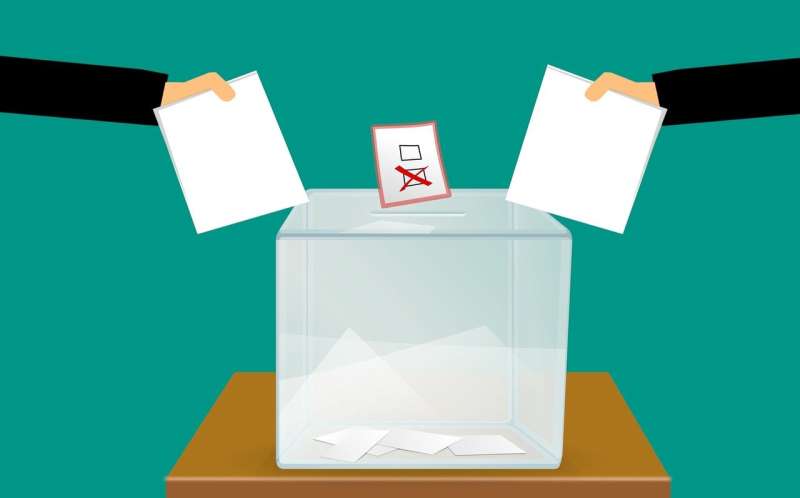This article has been reviewed according to Science X's editorial process and policies. Editors have highlighted the following attributes while ensuring the content's credibility:
fact-checked
trusted source
proofread
Longer ballots reduce voter participation, study shows

When it comes time to vote, you may think having more candidate options is better. But that's not necessarily the case.
Andrew Janusz, assistant professor in the College of Liberal Arts and Sciences at the University of Florida, and his co-authors tested the idea using data from real elections to measure voter participation. The study shows that when the candidate field is crowded, voters are more likely to sit out than turnout.
"We were interested in looking at whether there is a relationship between abstention rate and the number of candidates, " Janusz said. "Choosing between many alternatives is tiring. We expected that voters would be less likely to participate when they are asked to make complex decisions. The data we analyzed in the experiment shows that as the number of candidates increases voter participation declines."
The study's authors also analyzed whether listing party affiliation impacted voter participation.
"We may imagine that when people are given party information, it makes it easy for them to narrow the field and choose a candidate," Janusz said. "We found that party identification doesn't narrow the gap like we might expect."
The study, published in the Journal of Elections, Public Opinion and Parties, drew from 20 years of election data in Brazil between 2000-2020 totalling more than 60,000 elections. Forty-seven percent of races had at least three candidates and 4% had at least six candidates. In city council elections, the number of candidates is even larger and ranges from 25 candidates in small municipalities to more than a thousand candidates in the large cities.
Citizens are required to vote between the ages of 18 to 70 in Brazil. The monetary penalty for not participating is small, and on election day, citizens can vote for an individual candidate, a political party, or invalidate their ballot.
"So even if you're forced to turn out by the government, you still might be less likely to vote given more options on a ballot," Janusz said.
Janusz explained that the findings of the study most directly relate to voting behavior in electoral systems with large candidate fields, but they are important to consider for the upcoming elections in the United States.
"More and more politicians are throwing their hats in the ring and seeking their party's presidential nomination," Janusz said. "When voters aren't familiar with the candidates and presented with a ton of options, they're more likely to approach the election with a wait-and-see approach."
Early in the process, when the list of candidates is long, voters may be overwhelmed and think their opinions don't matter. However, that lack of participation has a huge impact on the ultimate outcome, Janusz explained.
"Although conventional wisdom suggests that providing voters greater choice may enhance democracy, our analysis shows that there is an overlooked cost to providing voters more choice," Janusz said.
More information: Saul Cunow et al, Too much of a good thing? Longer ballots reduce voter participation, Journal of Elections, Public Opinion and Parties (2023). DOI: 10.1080/17457289.2023.2216460
Provided by University of Florida




















